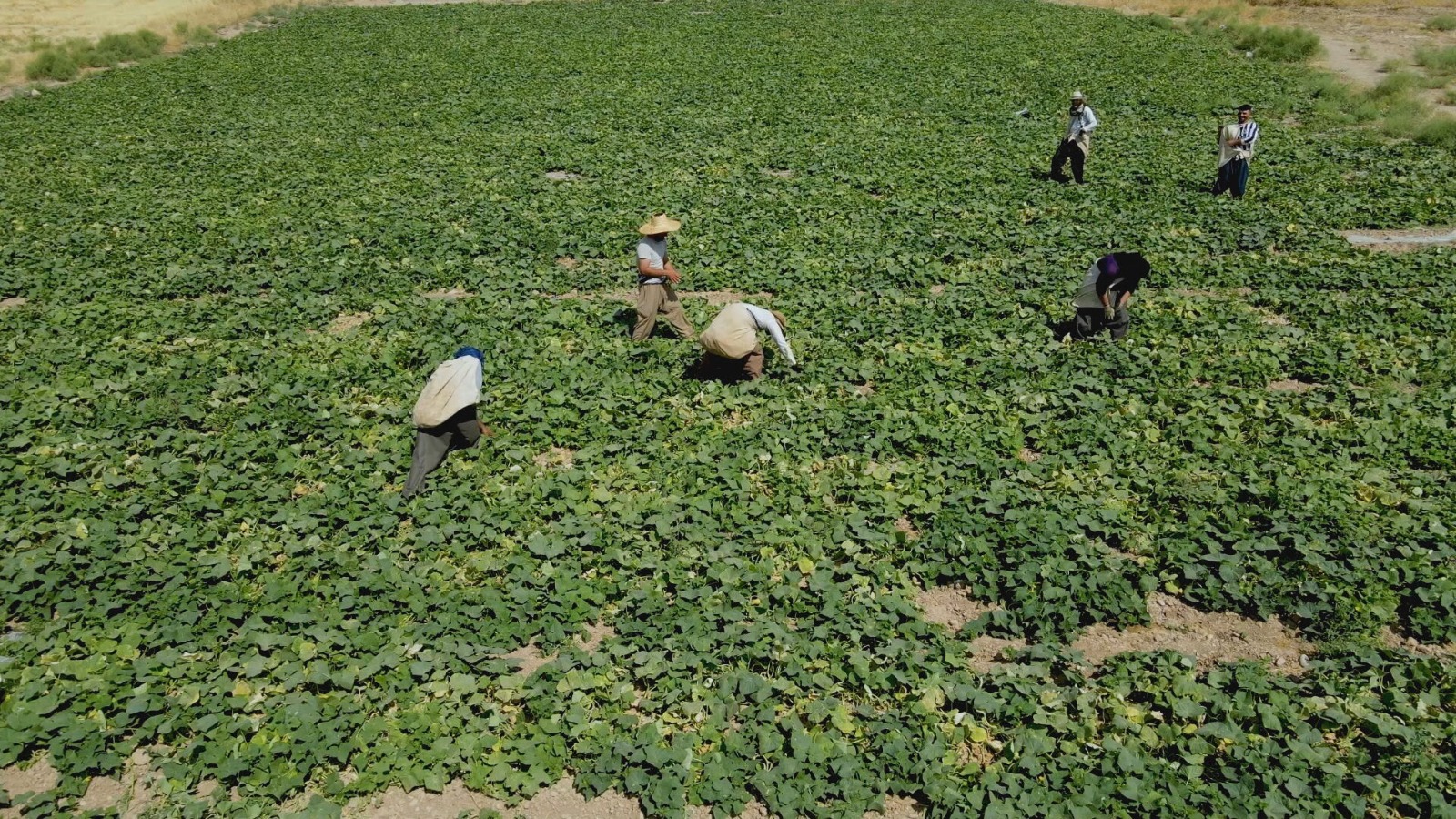Harvest Boom Creates Thousands of Jobs in Kurdistan
Kurdistan's summer harvest creates thousands of daily jobs, boosting the economy. Farmers invest in large-scale agriculture, providing vital income for workers who endure long hours for a daily wage.

ERBIL (Kurdistan24) — As the summer sun ripens crops across the Kurdistan Region, a seasonal economic boom is unfolding in its agricultural fields of the Independent Administration of Raparin, creating thousands of vital job opportunities and providing a daily income for a growing workforce willing to endure long hours of hard labor in exchange for a steady wage.
With the arrival of the harvest season, the fertile lands of the Kurdistan Region have transformed into bustling hubs of activity. From before dawn until the midday heat becomes overwhelming, thousands of workers can be found tending to and gathering the bounty of a sector increasingly seen as a cornerstone of the region's economic future. This surge in agricultural investment is providing a crucial source of employment for a significant portion of the population.
“Every day we have hundreds of workers who work for us, and job opportunities have been created for them,” one farmer explained, highlighting the scale of the seasonal labor demand.
The daily routine for these workers is demanding. Long before the rest of the world stirs, they begin their day. After the morning prayer, there is no going back to sleep; they leave their families and head directly to the fields. For approximately six hours, they engage in what is described as toil and fatigue, but it is a choice they make to secure a daily income for themselves and their families.
This phenomenon is a direct result of a strategic shift among the region's agricultural entrepreneurs. Many farmers are now investing heavily in the sector, planting large areas with one or more types of crops. This move towards large-scale cultivation requires a correspondingly large labor force to manage and harvest the produce.
Kawa Qadir, a farmer working in the region, provided a specific example of this trend to Kurdistan24. "We are 12 farmers from the Taq Taq area who have come here to farm," he said. "Between all of us, we have nearly 600 workers, who come to their jobs after the morning prayer."
The management of this workforce is a complex logistical operation. Supervisors are tasked with organizing and overseeing teams of workers, often brought in from different towns and villages. Karwan Qadir, a supervisor in one of the fields, detailed his daily responsibility. "I have two groups of workers," he explained. "One group of 15 people comes from Koya, and our other group has 16 workers who come from Kani Maran."
He noted the seasonal nature of the work is tied directly to the specific crop being harvested. "These workers will work for me every day until September, as long as the bean harvest lasts," Qadir added.
For the workers themselves, the opportunity, while physically demanding, provides a sense of pride and financial independence. Nermin Muhammad, a female worker, shared her perspective on the trade-off between domestic life and earning a wage. "We would also like to sit at home and tend to our homes and children," she said, "but we are very content with the money we earn by the sweat of our own brow, and it feels very good. Thank God there is work."
This sentiment reflects a broader socio-economic shift. The article notes that in the past, agricultural work was often performed through a system of communal labor known as "harawaz," where villagers would help each other without direct payment, relying less on a hired workforce. Today, the dynamic has changed. Each of these young men and women, instead of sitting at home, has chosen to enter the workforce to earn a daily income.
The Kurdistan Region's large swaths of fertile agricultural land are increasingly relied upon as one of its most important sources of income. Beyond its role in creating thousands of job opportunities, this vital sector is a key component of the region’s strategy to achieve self-sufficiency in various agricultural products and, ultimately, to become an exporter to international markets.
Kurdistan24's correspondent Aras Amin contributed to this report.
